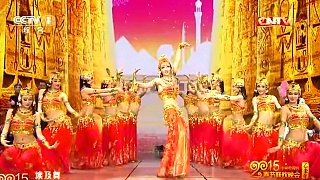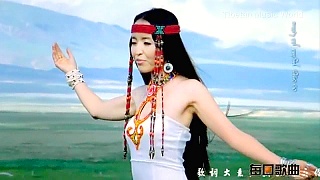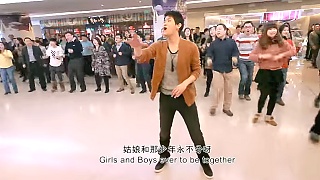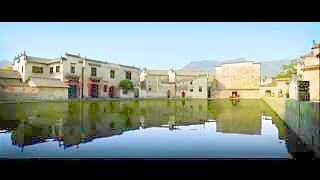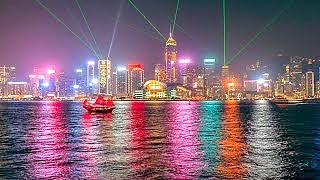
|
KunMing: 20 Kid-Friendly Places to Visit
Kunming Zoo (昆明动物园 Kūnmíng Dòngwùyuán): Zoo with a variety of animals, shows, and educational programs.
Dianchi Lake (滇池 Diānchí): Scenic lake with parks, boat rides, and recreational activities.
Yunnan Nationalities Village (云南民族村 Yúnnán Mínzú Cūn): Cultural theme park with ethnic minority exhibits, performances, and crafts.
Green Lake Park (翠湖 Cuìhú): Park with gardens, pavilions, and scenic views.
Yunnan Museum of Minority Nationalities (云南民族博物馆 Yúnnán Mínzú Bówùguǎn): Museum with exhibits on Yunnan's ethnic minorities, cultures, and traditions.
Yunnan Railway Museum (云南铁路博物馆 Yúnnán Tiělù Bówùguǎn): Museum with exhibits on Yunnan's railway history, technology, and artifacts.
Yuantong Temple (圆通寺 Yuántōng Sì): Buddhist temple with historic buildings, gardens, and statues.
Yunnan Wild Animal Park (云南野生动物园 Yúnnán Yěshēng Dòngwùyuán): Safari park with a variety of animals, shows, and interactive experiences.
Haigeng Park (海埂公园 Hǎigěng Gōngyuán): Park with lakes, gardens, and scenic spots.
Kunming Botanical Garden (昆明植物园 Kūnmíng Zhíwùyuán): Botanical garden with diverse plant collections, greenhouses, and walking trails.
Kunming World Horticulture Expo Garden (昆明世博园 Kūnmíng Shìbóyuán): Garden with themed areas, pavilions, and horticultural displays.
Western Hills Forest Reserve (西山森林公园 Xīshān Sēnlín Gōngyuán): Nature reserve with hiking trails, temples, and panoramic views of Kunming.
Kunming Grand View Park (昆明大观楼 Kūnmíng Dàguān Lóu): Park with traditional Chinese architecture, gardens, and viewpoints.
Yunnan Nationalities Museum (云南省民族博物馆 Yúnnán Shěng Mínzú Bówùguǎn): Museum with exhibits on Yunnan's ethnic minorities, history, and cultures.
Kunming Stone Forest Geological Park (昆明石林风景区 Kūnmíng Shílín Fēngjǐngqū): UNESCO World Heritage Site with unique limestone formations, caves, and trails.
Golden Temple Park (金殿公园 Jīndiàn Gōngyuán): Park with a Taoist temple, gardens, and scenic landscapes.
Yunnan Military Academy Museum (云南陆军讲武堂博物馆 Yúnnán Lùjūn Jiǎngwǔtáng Bówùguǎn): Museum with exhibits on Yunnan's military history, uniforms, and weapons.
Kunming Daguan Park (昆明大观公园 Kūnmíng Dàguān Gōngyuán): Park with lakes, pavilions, and traditional Chinese architecture.
Yunnan Nationalities University (云南民族大学 Yúnnán Mínzú Dàxué): University campus with architectural features, gardens, and cultural events.
Kunming Zoo (昆明动物园 Kūnmíng Dòngwùyuán): Zoo with a variety of animals, shows, and educational programs.
KunMing: 30 More Places to Visit
Yunnan Provincial Museum (云南省博物馆 Yúnnán Shěng Bówùguǎn): Museum with exhibits on Yunnan's history, culture, and artifacts.
Yuantong Mountain (圆通山 Yuántōng Shān): Scenic mountain with temples, pagodas, and hiking trails.
Kunming Golden Temple (昆明金殿 Kūnmíng Jīndiàn): Taoist temple with a golden pavilion, gardens, and cultural exhibits.
Yunnan Railway Museum (云南铁路博物馆 Yúnnán Tiělù Bówùguǎn): Museum with exhibits on Yunnan's railway history, technology, and artifacts.
Kunming Western Hills Forest Reserve (昆明西山森林公园 Kūnmíng Xīshān Sēnlín Gōngyuán): Nature reserve with temples, hiking trails, and panoramic views of Kunming.
Kunming Flowers and Birds Market (昆明花鸟市场 Kūnmíng Huāniǎo Shìchǎng): Market with flowers, birds, pets, and gardening supplies.
Green Lake Park (翠湖 Cuìhú): Park with gardens, pavilions, and scenic views.
Dianchi Lake (滇池 Diānchí): Scenic lake with parks, boat rides, and recreational activities.
Kunming World Horticulture Expo Garden (昆明世博园 Kūnmíng Shìbóyuán): Garden with themed areas, pavilions, and horticultural displays.
Stone Forest (石林 Shílín): UNESCO World Heritage Site with unique limestone formations, caves, and hiking trails.
Yunnan University (云南大学 Yúnnán Dàxué): University campus with historic buildings, gardens, and cultural events.
Kunming Dragon Gate (西山龙门 Xīshān Lóngmén): Taoist temple complex with sculptures, caves, and panoramic views.
Green Lake Park (翠湖 Cuìhú): Park with gardens, pavilions, and scenic views.
Kunming Cuihu Park (昆明翠湖公园 Kūnmíng Cuìhú Gōngyuán): Park with a lake, pavilions, and walking paths.
Kunming Confucius Temple (昆明文庙 Kūnmíng Wénmiào): Confucian temple with historic architecture, gardens, and cultural events.
Yuantong Temple (圆通寺 Yuántōng Sì): Buddhist temple with historic buildings, gardens, and statues.
Kunming Grand View Park (昆明大观楼 Kūnmíng Dàguān Lóu): Park with traditional Chinese architecture, gardens, and viewpoints.
Kunming Flowers and Birds Market (昆明花鸟市场 Kūnmíng Huāniǎo Shìchǎng): Market with flowers, birds, pets, and gardening supplies.
Yunnan Museum (云南省博物馆 Yúnnán Shěng Bówùguǎn): Museum with exhibits on Yunnan's history, culture, and artifacts.
Kunming Western Hills Forest Reserve (昆明西山森林公园 Kūnmíng Xīshān Sēnlín Gōngyuán): Nature reserve with temples, hiking trails, and panoramic views of Kunming.
Kunming Dragon Gate (西山龙门 Xīshān Lóngmén): Taoist temple complex with sculptures, caves, and panoramic views.
Green Lake Park (翠湖 Cuìhú): Park with gardens, pavilions, and scenic views.
Dianchi Lake (滇池 Diānchí): Scenic lake with parks, boat rides, and recreational activities.
Yunnan Nationalities Village (云南民族村 Yúnnán Mínzú Cūn): Cultural theme park with ethnic minority exhibits, performances, and crafts.
Yunnan Provincial Museum (云南省博物馆 Yúnnán Shěng Bówùguǎn): Museum with exhibits on Yunnan's history, culture, and artifacts.
Kunming Golden Temple (昆明金殿 Kūnmíng Jīndiàn): Taoist temple with a golden pavilion, gardens, and cultural exhibits.
Yunnan Nationalities University (云南民族大学 Yúnnán Mínzú Dàxué): University campus with architectural features, gardens, and cultural events.
Kunming Cuihu Park (昆明翠湖公园 Kūnmíng Cuìhú Gōngyuán): Park with a lake, pavilions, and walking paths.
Kunming Confucius Temple (昆明文庙 Kūnmíng Wénmiào): Confucian temple with historic architecture, gardens, and cultural events.
Stone Forest (石林 Shílín): UNESCO World Heritage Site with unique limestone formations, caves, and hiking trails.
|
 Awesome world music collaboration – the kids unite (so there is hope) – don’t miss it !
Awesome world music collaboration – the kids unite (so there is hope) – don’t miss it !




